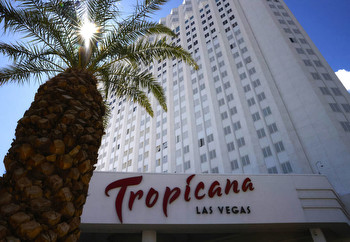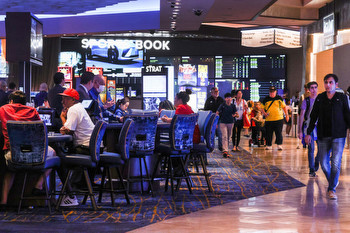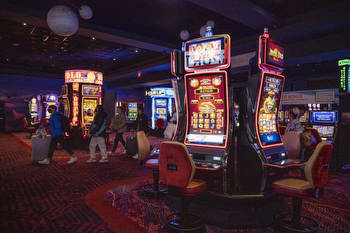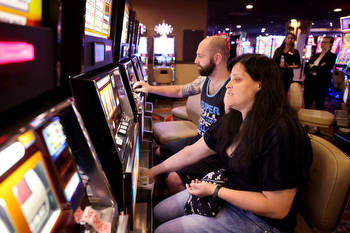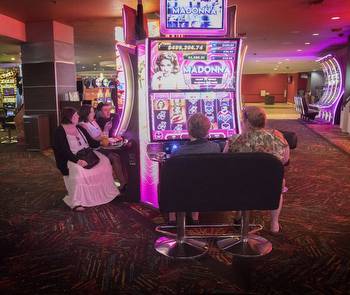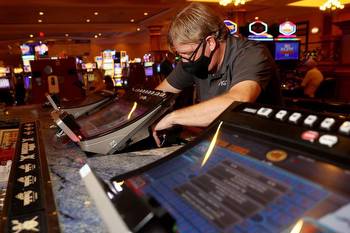Nevada shows double-digit decline in gaming win in October

Visitors avoiding playing in Strip casinos are taking its toll on gaming win and the tax revenue it generates.
While October casino gaming win inched upward from September, it was still the eighth consecutive month of declines from 2019, the Nevada Gaming Control Board reported Tuesday.
The board reported casino win of $822.7 million, 19.5 percent less than in October 2019. In September, the state’s casinos won $821.1 million, which was 22.4 percent below the previous year.
Restricted capacities in casinos and tourists staying away during the coronavirus pandemic are taking their toll on casino win, a percentage of which goes to the state’s general fund in gaming tax.
Unused transferable tax credits collected in the 2020 fiscal year and moved to 2021 are keeping gaming tax collections stable. The Control Board reported $125.8 million in unused credits have resulted in collections of $355.2 million for the first five months of the fiscal year, a 14.9 percent increase over the previous year. But October tax revenue was down 18.9 percent to $50.5 million.
Southern Nevada win appears to be declining more than the rest of the state’s markets with double-digit percentage declines in Clark County, the Strip, downtown Las Vegas, North Las Vegas, the Boulder Strip and Laughlin, but better than October 2019 in the state’s other 13 monitored markets.
In Clark County, win was off 23.6 percent in October to $671.8 million, with the Strip off 30.2 percent to $376.8 million and downtown Las Vegas down 22.7 percent to $52.8 million.
Michael Lawton, senior research analyst for the Control Board, said the Strip accounted for 82 percent of this month’s total decrease and 87 percent of the statewide decrease since gaming operations resumed in June after being closed 78 days since March 17.
Downtown results caught the first days of win revenue generated by Circa, which opened its doors to the public Oct. 28. But October win also had the advantage of a favorable calendar with two more weekend days open than in October 2019.
“The performance of several markets which showed year-over-year increases was the result of the favorable calendar in addition to the fact that these markets rely on a combination drive-in traffic and local play,” Lawton said. “The recovery is going to be uneven between markets that rely on local play vs. markets that rely more on destination air travel.”
Wall Street gaming analyst Joe Greff of New York-based J.P. Morgan concurred that the calendar difference was a big factor year-over-year comparisons and he said investors should favor locals casinos stocks — Red Rock Resorts and Boyd Gaming — over those of Strip operators.
“The Las Vegas locals market is exhibiting a faster recovery than the Las Vegas Strip gross gaming revenue, as evident on Boyd Gaming and Red Rock Resorts third-quarter earnings conference calls — which makes sense given the general Clark County area population and retiree base in the area,” Greff wrote Tuesday in a note to investors. “We continue to prefer Las Vegas locals exposed operators over Las Vegas Strip operators.”
Lawton said the sportsbook drop — the amount wagered — was a record $659.6 million, up 21.3 percent over October 2019’s performance. But casinos held 6.4 percent of the drop compared with 8.8 percent last year resulting in win being down 11.5 percent to $42.4 million.
Sports wagers made with mobile apps won $13.6 million on $376.9 million in wagers, holding 3.6 percent. Betting on apps represented 57.1 percent of all sports wagers.








